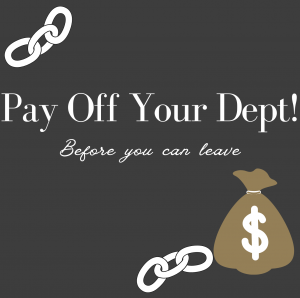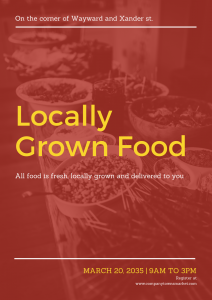Second Future: The World of Company Towns
In this chapter, we break down what we believe would happen in a world with companies building towns around their headquarters/factories. Getting into the mindset of being in that reality we did a ‘day in the life as a student’. Often this turned into an overview/story with a darker theme. After we tried thinking of positive outcomes of this world and the benefits that would come from it. We then tried to imagine what school would look like, in this world we decided to take a negative take and have a school that was trying to control their future workers and create a cycle of obedience. As we dove into the school we thought of possible classes and advertising the school might have.
The World of Company Towns
A Day in The Life of a Student (Company Town Edition)
It was little Timmy’s first day of high school! He was so excited! The town paid for all the children’s education, which meant lunch was provided every day! A helping portion of yummy bread and some soup! Timmy’s family could never afford bread or soup at home… not with all the debt they owed to the town. But just thinking about that bread and soup made Timmy’s mouth water. “How lucky I must be to get so much food for free!” Timmy thought to himself. Little did he know, there was something larger at play here, something twisted.
Timmy’s family worked at a factory owned by the town and every day they would get a little bit of money for their hard work. It was never enough though. Everything at the company town shop was absurdly expensive, but this town was so cut off from the rest of the world that it wasn’t worth seeking out alternative options. That’s when the debt started, and now, no one can leave until it’s all paid off. It’s almost as if they’re prisoners. But anyway, Timmy had many things to look forward to, like making friends and learning in his classes. Although… When he first got to class he was confused. Timmy expected laughter and positivity with plenty of help and resources for learning but, when he got there, everything seemed rather dull. The teachers didn’t care about their teachings and the atmosphere seemed thick with dread. I guess since the town-owned the school, and no one would dare oppose the town, there was no standard for teaching or learning. Everyone was just trying to keep their head down and not get into trouble. Timmy shook off this perspective and decided to look forward to the classes he had been excited for:
A Positive Outcome – Company Town
The ‘day in the life of a student’ story had a darker theme to it due to the natural nature of writing an intriguing story. But we didn’t want our perspective of our future to be completely dark, to oppose these themes we viewed the town with a different positive perspective to see what the town could offer that would be beneficial to its residents. Another our outcomes all seem like positive attributions of the company, we did note that with abuse of power, our positives could contribute to the negative view (for example, free childcare could be a way of making residents increase their dept. or be stuck in the town).
- The town offers free child care for all working moms and dads who may not have that support system at home. This allows them to go to work every day, without the stress of wondering who is going to take care of their child and if they can afford outsourced help.
- The town also covers post-secondary education fees for all students who decide to pursue that route. This is another stress off of parents’ shoulders and allows them to put that money elsewhere.
- One of the best benefits of the company town is that everything they consume is locally grown and/or sourced – they like to model the idea of “farm to table.” Nothing we eat has to be imported, so we don’t have to worry about what is going into the food we eat. Everything comes right from the town and has the trust of many.
- Another benefit is that the town pays for extras ex. Laundromats, recreation facilities, libraries, etc… This means that residents of company towns gain access to an increasing amount of government-funded public resources such as schools, libraries, and parks. Within these resources are professionals who were deeply passionate about their job, ex. Teachers. They would not go into this profession if that was not the case.
- Workers receive free homes, food, and clothing.
- Without external competition, housing costs and groceries in company towns could become less and less
Courses
The point of developing classes is to connect the future to the educational system and see (from our perspective) what schools and classes will look like in the future. This method also allows us to immerse ourselves in our future more by seeing how each future affected the educational system and if their similar to each other or if they’re unique. The courses at this school focus on educating the population of the town so they can be the best (compliant) workers they can be. All classes are designed to improve the students’ work habits without letting them realize they’re being taken advantage of.
English
- Introduction to English
- Fundamentals of Grammar
- Fundamentals of Speaking to Management
Math
- Introduction to Basic Mathematics
Society
- Conforming to Society
Engineering
- Fundamentals of Factory Operations
- Material and Fluid Properties
Business
- Fundamentals of Time Management
- Fundamentals of Money Management
Advertising
The first advertisement done for this world is a negative view of the control the company may have over the town and the people in it. The idea of this world is that the company town would have its own groceries, entertainment, and other necessities and keep the cash flow within. This could create a power division of greedy people that force workers to stay in the town by controlling their money and in order to leave, you must repay the debt.

The second advertisement was a recruiting ad with a positive take. This ad shows the free childcare that the companies could provide as a benefit for families. However, it is noted (as previously stated) that with abuse of power in the company town, this ‘positive’ could actually have harmful effects on the families as they may feel trapped and contribute to the ‘negative’ advertisement above.

The final advertisement was created with a positive perspective. it is imagined that the advertisement would be released by the town to promote their local farmers. this one specifically is promoting a market pop-up at the end of March in 2035. This is considered a positive advertisement as it is not only showing the company supporting local farmers but it is showing how the town is self-reliant and provides jobs other than those specific to their industry (factory or headquarters).


